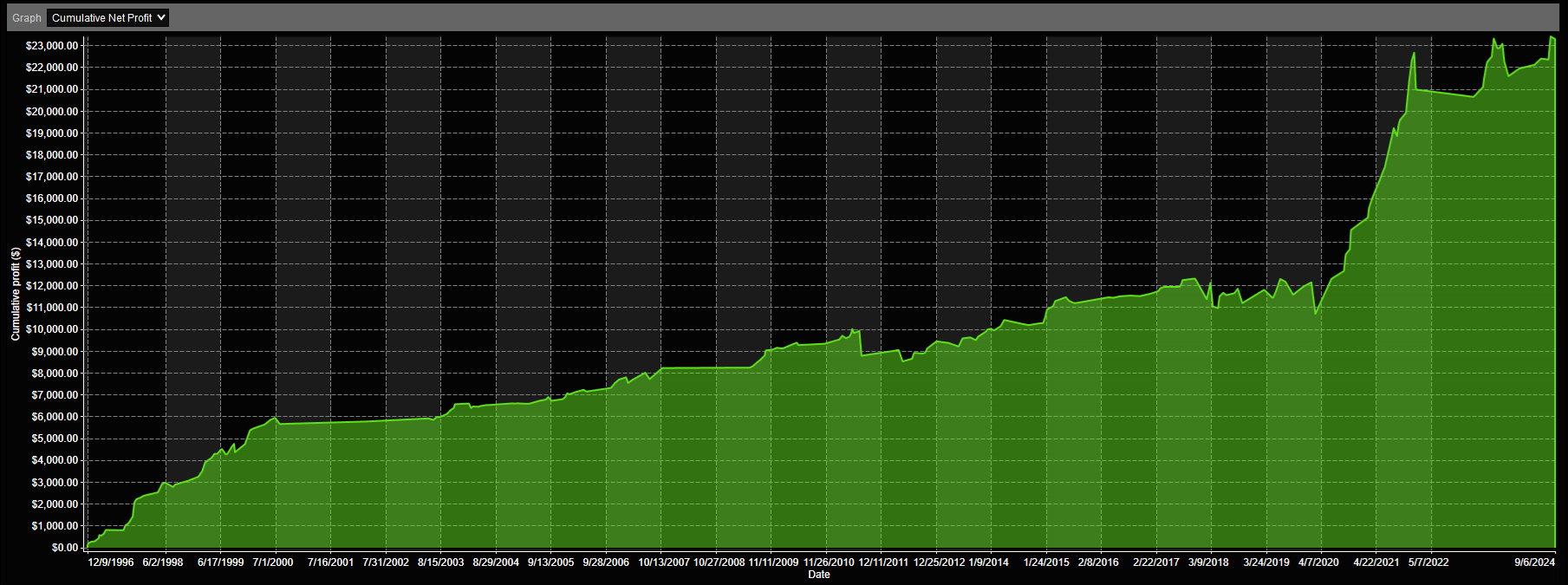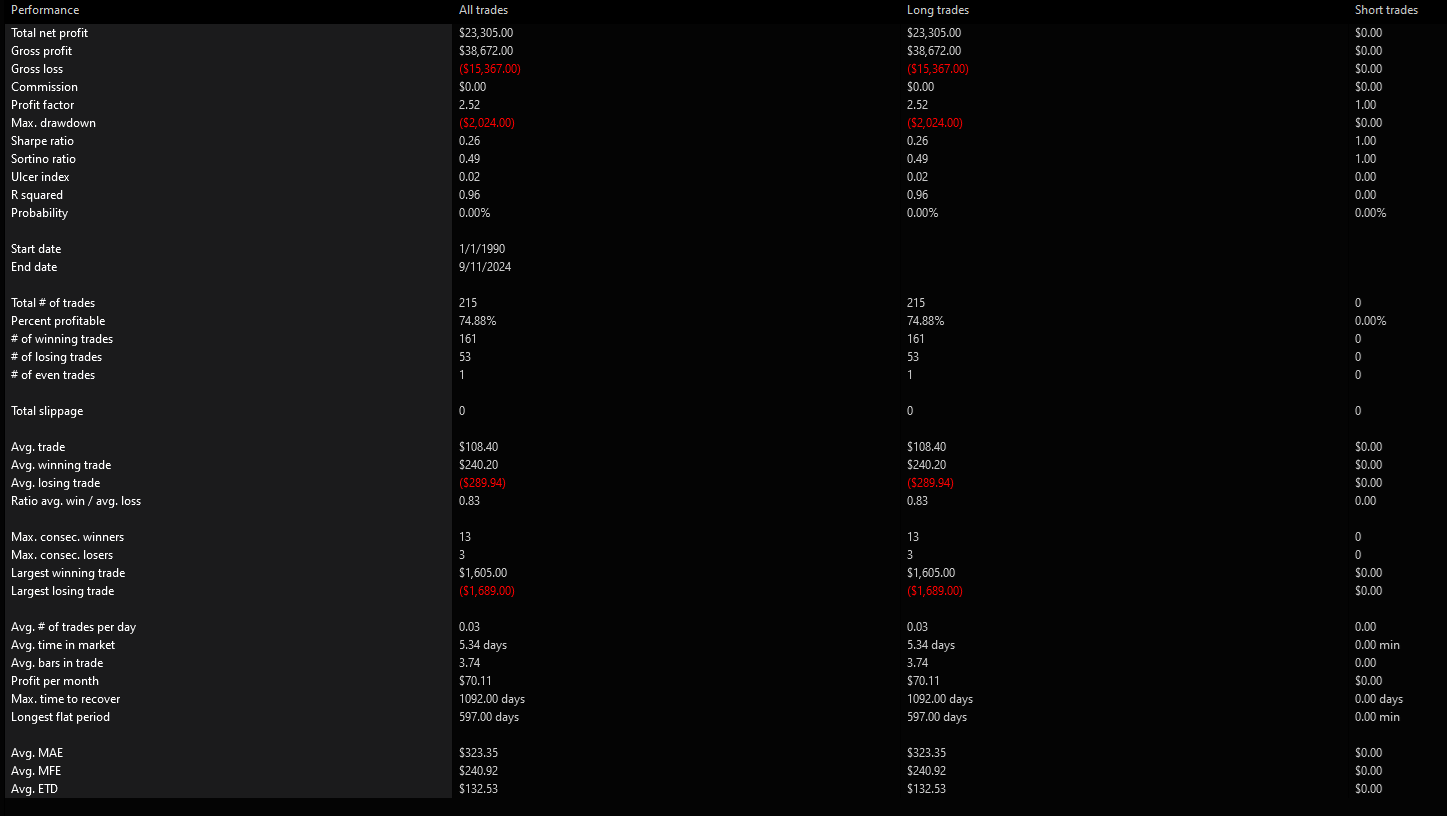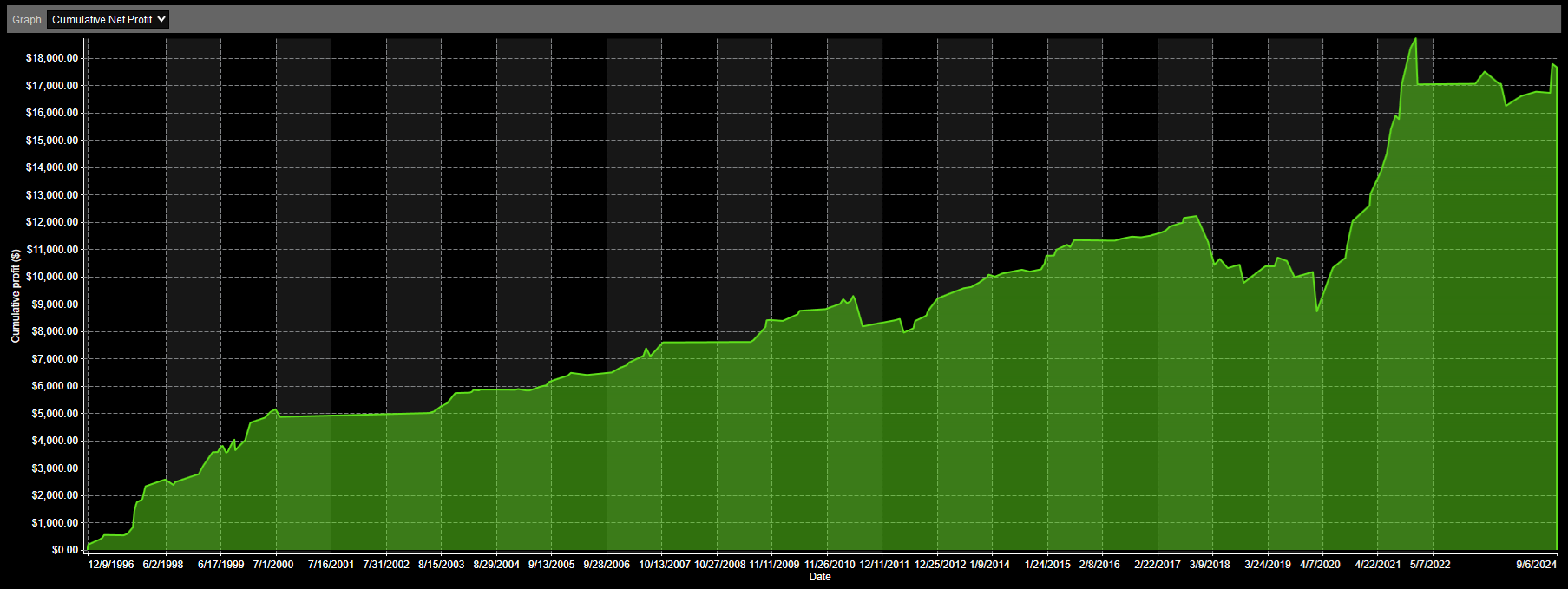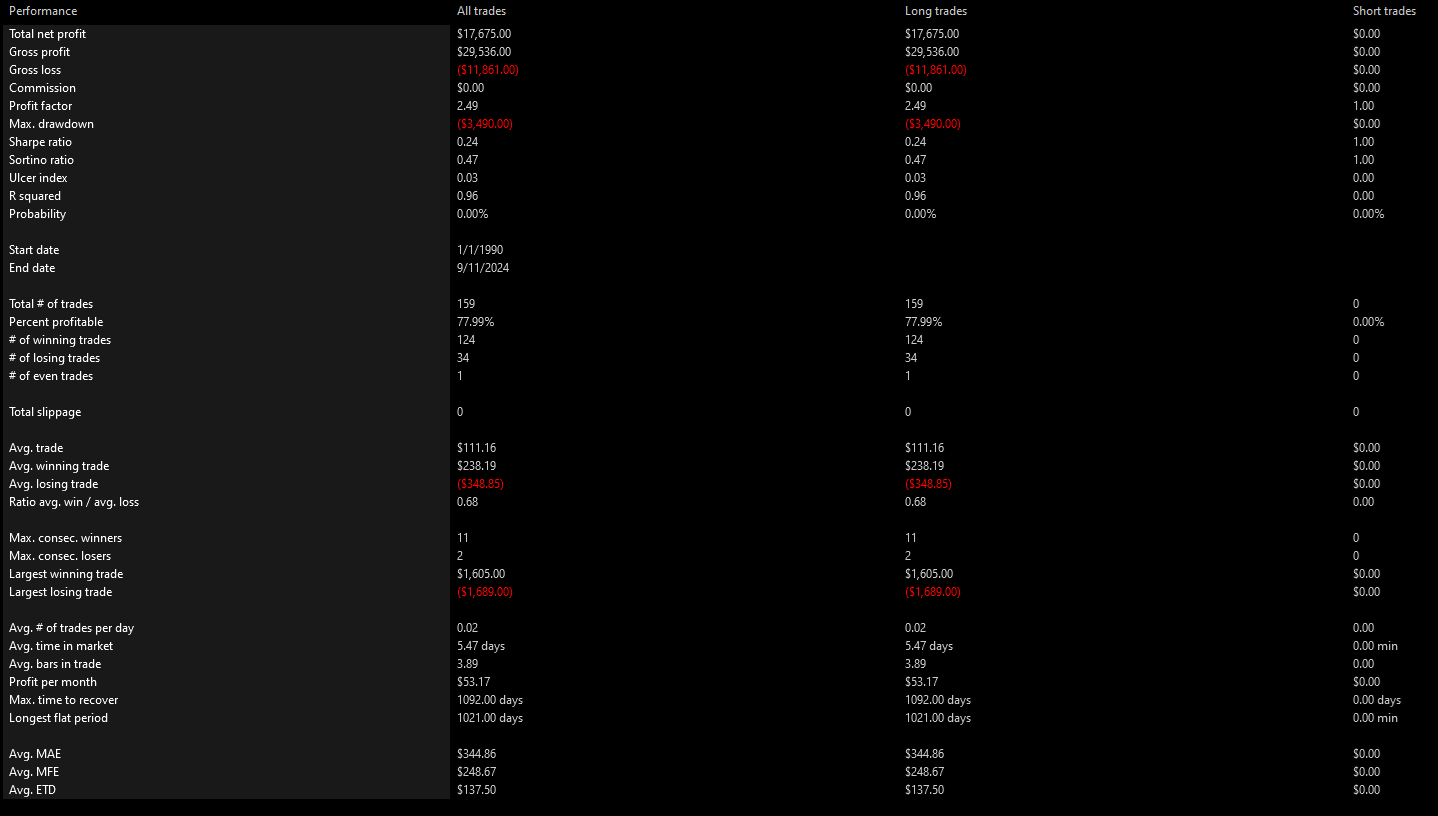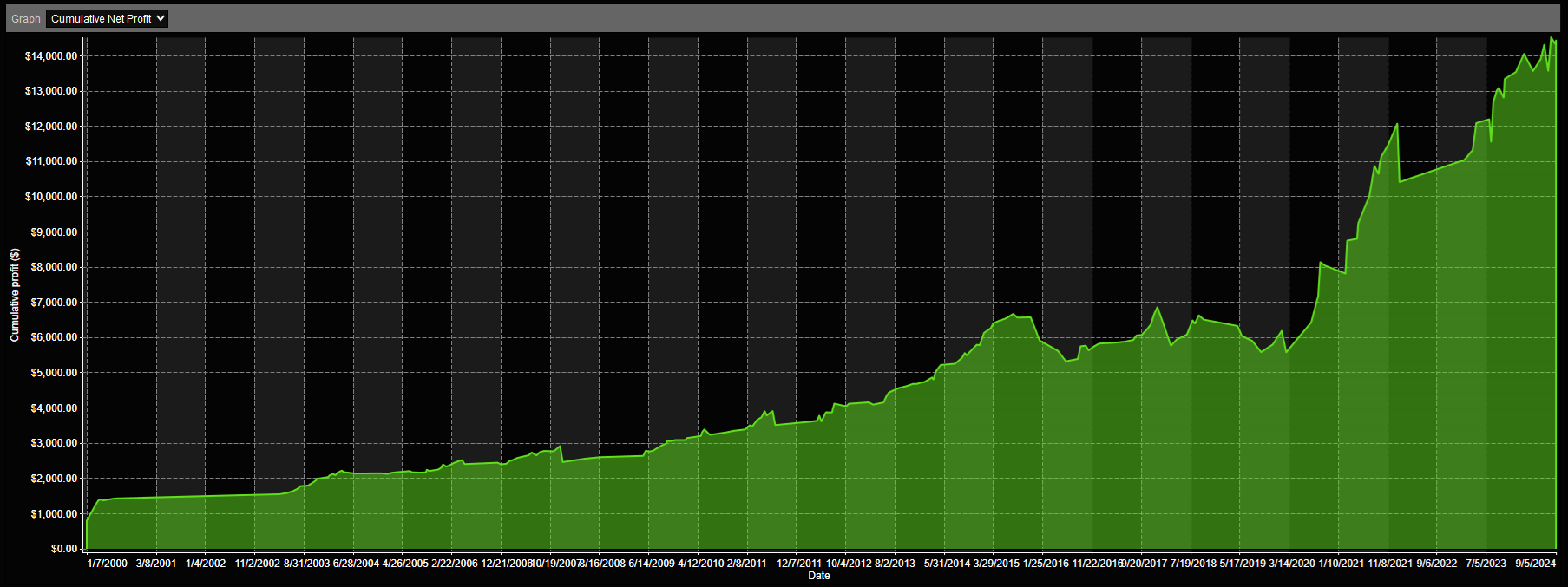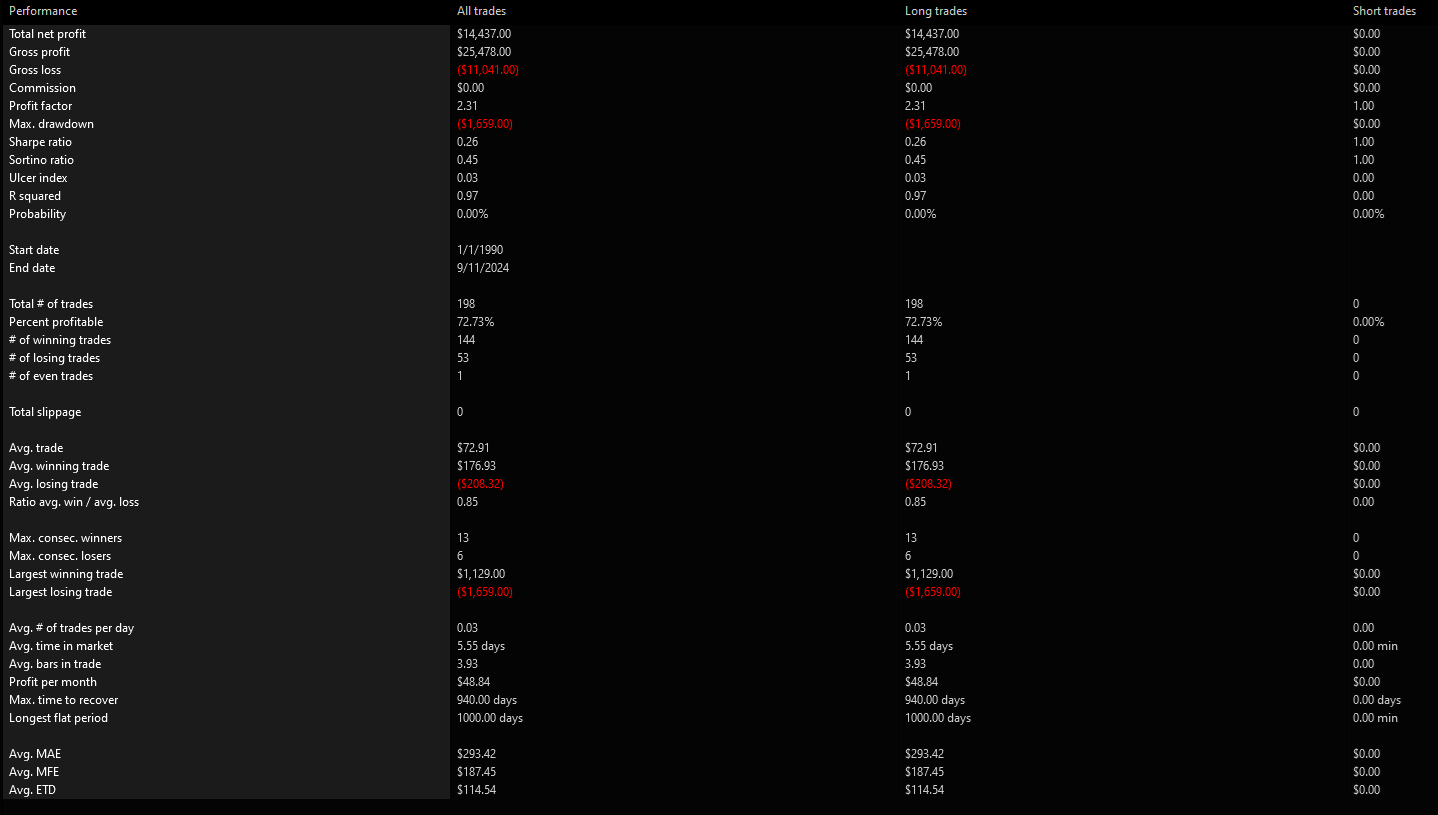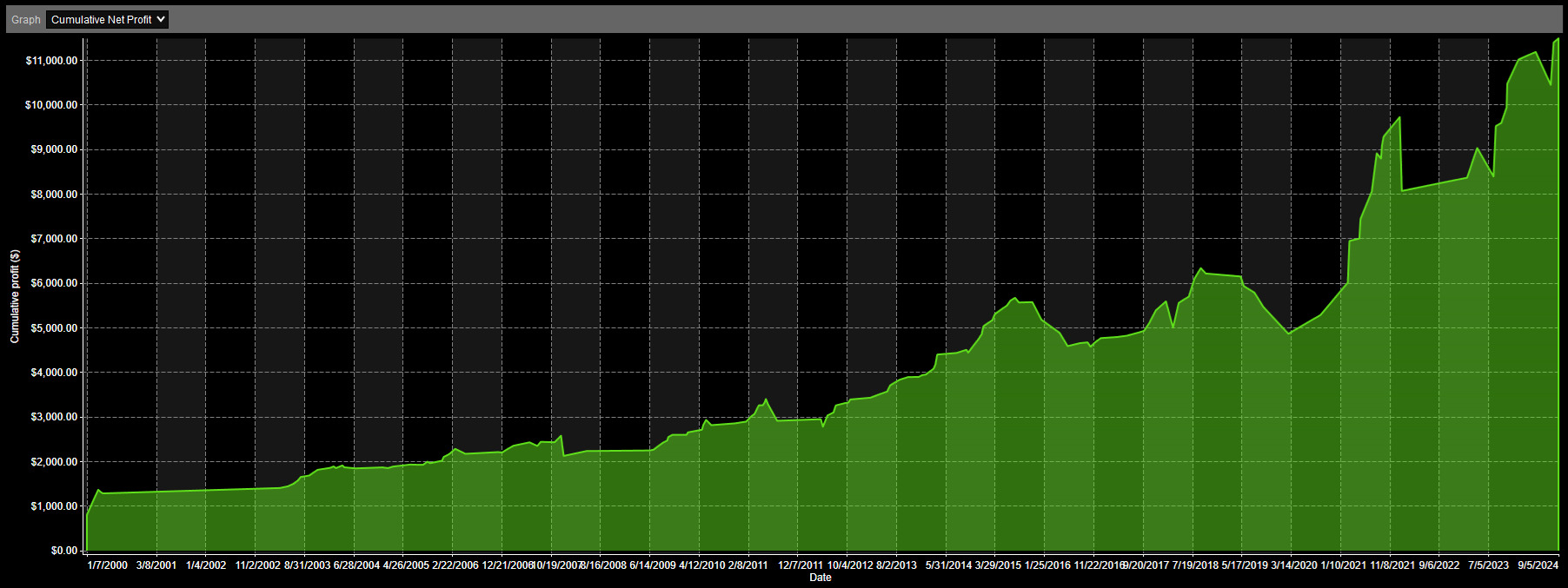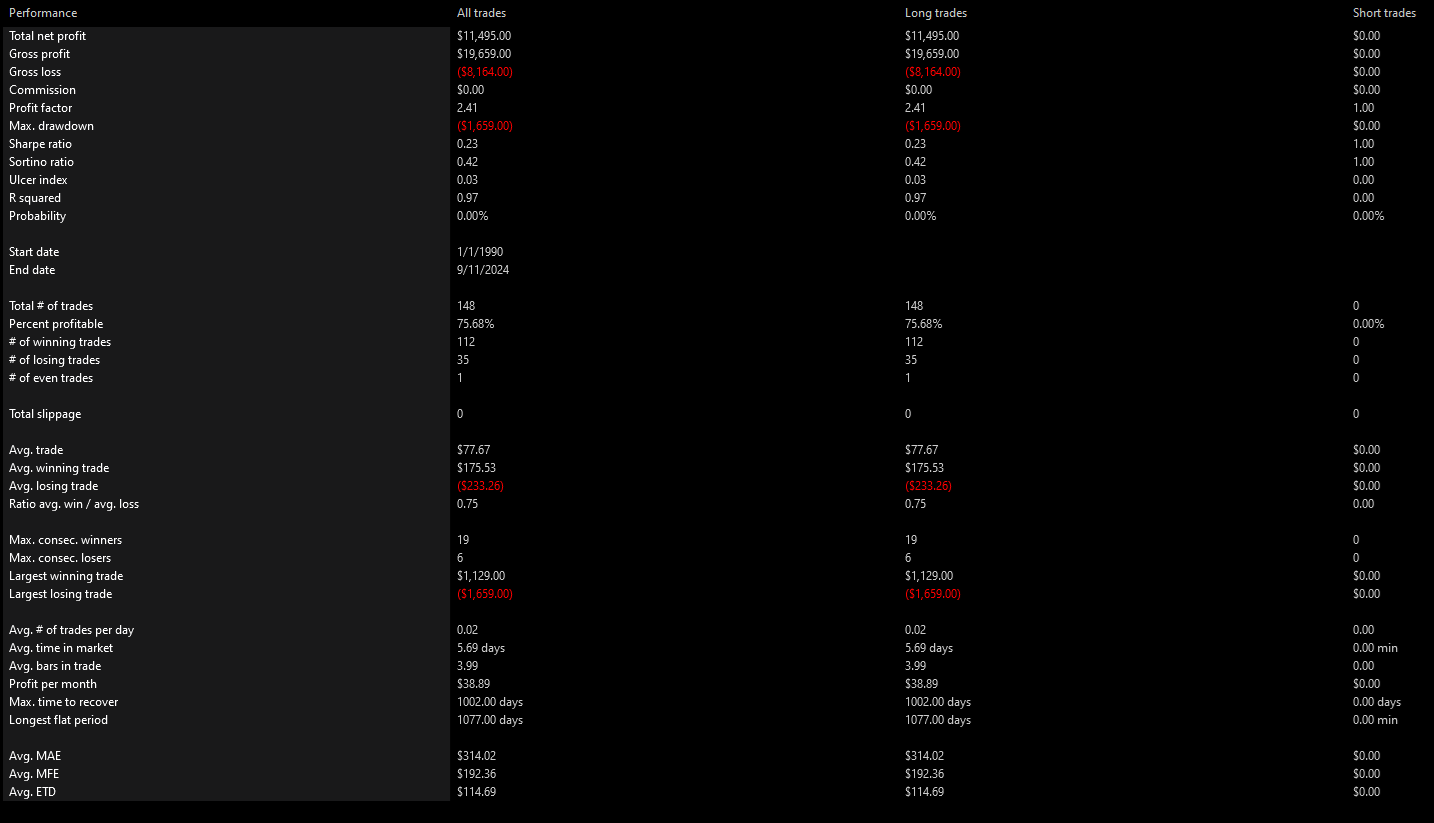2.5 KiB
Cumulative RSI
This strategy was taken from chapter 9 of Short Term Trading Strategies That Work (2008) by Larry Connors.
It is based on the Cumulative RSI indicator described in the book.
Rules
- The asset (e.g., SPY) is above its 200-day moving average.
- If the 2-day cumulative 2-period RSI is below 35, enter a long position.
- Exit the position when the 2-period RSI is above 65.
An alternate set of rules is provided in chapter 12 as follows (differences bolded):
- The asset (e.g., SPY) is above its 200-day moving average.
- If the 2-day cumulative 3-period RSI is below 45, enter a long position.
- Exit the position when the 2-period RSI is above 65.
Parameters
Cumulative RSI Period: The period to use in the RSI calculation. (Default: 2)
Cumulative RSI Smoothing: The smoothing to use in the RSI calculation. (Default: 1, no smoothing)
Cumulative Period: The number of RSI values to add up. (Default: 2)
RSI Period: The period of the RSI used to exit trades. (Default: 2)
RSI Smoothing: The smoothing of the RSI used to exit trades. (Default: 1)
SMA Period: The period used to calculate the long term trend as measured using a simple moving average. (Default: 200)
Entry Threshold: The Cumulative RSI threshold below which a trade is entered. (Default: 35)
Exit Threshold: The RSI threshold above which a trade is exited. (Default: 65)
Backtest Results
SPY
Alternate Rules
QQQ
Alternate Rules
